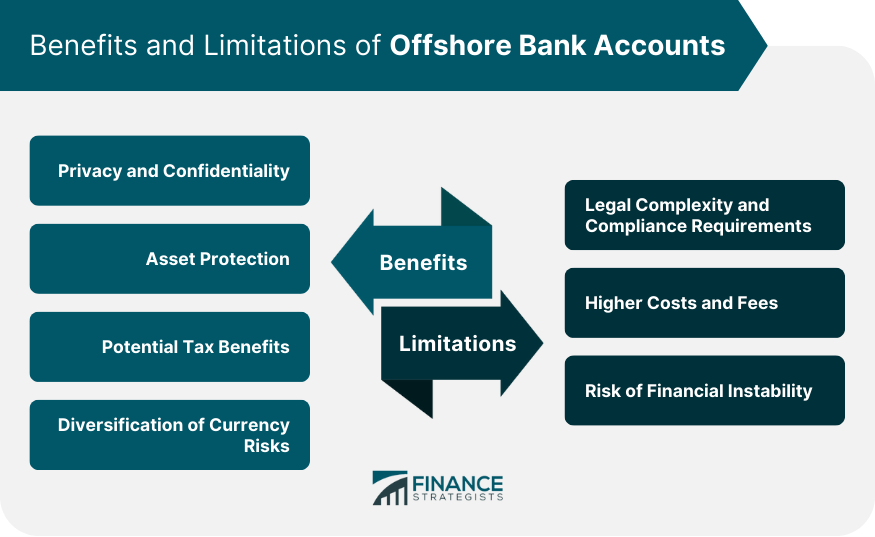Offshore Company Formation: Crucial Actions for International Development
Recognizing the Lawful Ramifications of Offshore Company Formation

Legal Structure for Offshore Firms
When establishing an overseas company, comprehending the lawful framework governing its formation and operation is critical for compliance and risk monitoring. Offshore companies run under particular laws and regulations that vary from those of onshore entities. The legal framework for offshore business typically includes stipulations for company registration, investor demands, director obligations, and tax responsibilities.
Business registration includes submitting the required documents to the appropriate regulative authorities in the chosen territory. This procedure frequently requires thorough details concerning the firm's structure, investors, and intended tasks. In addition, offshore firms have to follow particular shareholder requirements, such as preserving a register of investors and keeping this information up to day.
Directors of overseas business have fiduciary responsibilities to act in the best passions of the company and its shareholders. By sticking to the legal framework regulating offshore firms, services can run with confidence while decreasing legal dangers.


Tax Obligation Implications and Laws
Comprehending the tax implications and regulations is vital when thinking about the establishment and operation of an offshore company. Offshore companies are commonly subject to beneficial tax routines, providing minimized or zero tax rates on foreign-earned revenue.
Tax obligation policies for overseas companies differ dramatically across territories, and it is critical to look for skilled guidance to recognize the details needs and commitments. Detailed knowledge of tax obligation regulations and guidelines, as well as appropriate tax planning, are vital to guarantee the successful and certified procedure of an overseas business.
Conformity Needs and Reporting
Guaranteeing conformity with regulative demands and maintaining precise reporting are vital aspects of taking care of an offshore company efficiently and transparently. Offshore companies need to stick to the legislations and guidelines of both the territory in which they click to find out more are integrated and any other appropriate jurisdictions where they carry out organization. Compliance requirements typically include filing annual returns, monetary statements, and tax reports with the ideal authorities. Failure to meet these responsibilities can result in penalties, fines, or perhaps the cancellation of the firm's registration.
Along with regulatory conformity, offshore companies are typically based on reporting needs to make sure openness and protect against unlawful activities such as money laundering or tax obligation evasion. Coverage responsibilities may include divulging info about the business's possession framework, financial tasks, and recipients. This details may require to be shared with regulatory bodies, tax obligation authorities, or various other governmental companies, depending upon the jurisdiction.
Maintaining comprehensive and precise records is important for demonstrating conformity and replying to any kind of queries or audits effectively. Offshore business ought to implement durable coverage mechanisms and inner controls to make sure that they meet all lawful demands and operate with honesty.
Property Defense and Personal Privacy Rules
In the world of overseas firm development, an essential consideration is the interplay in between property protection approaches and personal privacy laws. By structuring properties within an offshore firm, individuals can protect their riches and expand their holdings throughout various lawful More Info frameworks. Inevitably, understanding view publisher site the detailed relationship in between possession security strategies and privacy laws is extremely important when considering offshore business formation.
Risks and Difficulties to Think about
When venturing into overseas company formation, prudent factor to consider of prospective dangers and obstacles is important for educated decision-making and tactical preparation. One significant danger to take into consideration is the possibility of increased scrutiny from governing authorities because of the viewed organization of offshore entities with tax obligation evasion and cash laundering. This heightened examination can result in extensive compliance requirements and possible legal implications if not effectively addressed. Furthermore, political instability or adjustments in offshore jurisdictions can position a risk to the continuity of procedures and the security of assets held by the offshore business.
Obstacles may additionally arise worrying the complexity of overseas firm structures and the requirement for skilled legal and monetary guidance to navigate the elaborate regulatory frameworks of different territories (offshore company formation). Preserving conformity with varying global regulations and policies, along with possible language barriers and social distinctions, can further complicate the overseas firm development procedure. It is important to be knowledgeable about these dangers and obstacles before waging overseas company formation to minimize possible risks and make certain a smooth and lawfully audio establishment
Final Thought
To conclude, overseas firm formation entails navigating complicated legal frameworks, tax ramifications, compliance requirements, and privacy regulations. Comprehending these aspects is essential for reducing difficulties and dangers related to offshore organization operations. It is important for companies and individuals considering offshore firm development to look for expert advice to make certain compliance with guidelines and to protect their properties efficiently.
The legal structure for overseas firms normally consists of stipulations for business registration, shareholder needs, director obligations, and tax obligation obligations.
Supervisors of offshore business have fiduciary duties to act in the finest rate of interests of the company and its investors. By adhering to the legal structure governing offshore business, organizations can run with self-confidence while minimizing legal threats.
In addition, political instability or adjustments in overseas jurisdictions can position a threat to the connection of operations and the protection of possessions held by the overseas firm. - offshore company formation
In final thought, offshore firm development includes browsing intricate legal structures, tax effects, compliance demands, and privacy laws.